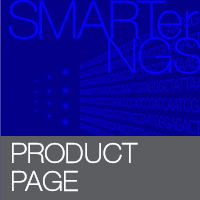Next-generation sequencing (NGS) is a key tool for transcriptome analysis, with high sensitivity and a wide dynamic range. One challenge in NGS transcriptome analysis studies centers around FFPE (formaldehyde-fixed paraffin-embedded) tissue, in which the RNA is typically degraded.
Random-primed cDNA synthesis is an ideal solution for transcriptome analysis from FFPE tissue and other samples containing fragmented RNA; however, ribosomal RNA (which makes up ≥90% of total RNA) must be removed from these samples prior to cDNA synthesis. The RiboGone - Mammalian kit uses hybridization technology and RNase H digestion to identify and specifically degrade/eliminate 5S, 5.8S, 18S, and 28S nuclear rRNA sequences and 12S mitochondrial RNA sequences from RNA derived from human, mouse, or rat tissues.
Following RiboGone - Mammalian treatment, the RNA sample is ready for random-primed cDNA synthesis with the SMARTer Universal Low Input RNA Kit for Sequencing, which excels at cDNA amplification from low-input, fragmented RNA such as that found in FFPE tissue. The cDNA can then be prepared for sequencing using either the Illumina-specific ThruPLEX DNA-seq library preparation kit or Ion Torrent library preparation kits.







